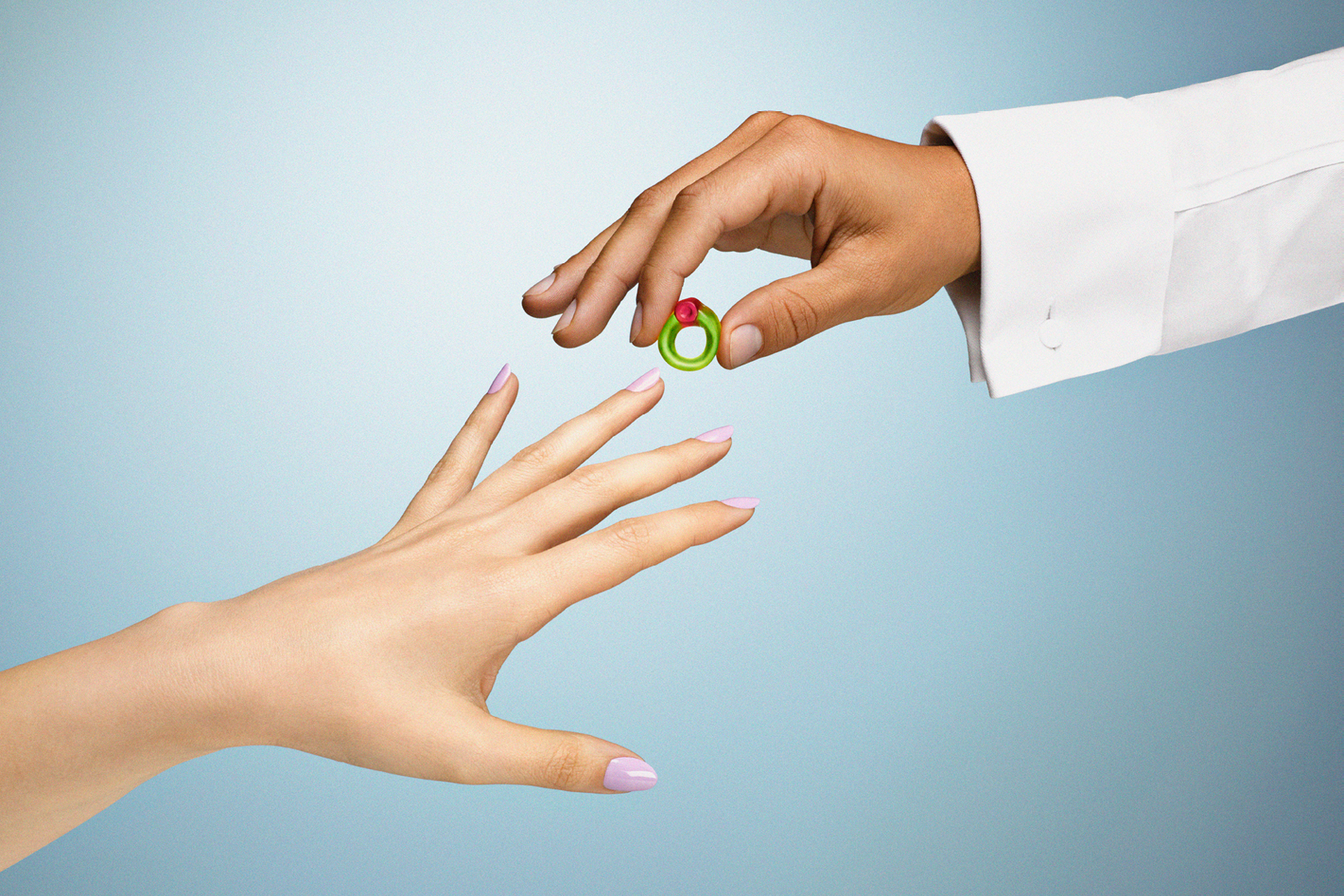Post-engagement anxiety is pretty common, so why is nobody talking about it?

Written by Lauren Geall
As Stylist’s digital writer, Lauren Geall writes on topics including mental health, wellbeing and women’s issues. She’s also a big fan of houseplants and likes to dabble in film and TV from time-to-time. You can find her on Twitter at @laurenjanegeall.
Getting engaged to someone you love is a beautiful experience – but it can also be overwhelming. Here’s what you need to know aboutpost-engagement anxiety.
When Ellen’s* boyfriend of five years proposed to her earlier this year, she was hit by a jumble of emotions. The couple, who were on holiday at the time, spent the next few hours calling friends and family, soaking in the joy and excitement their news was bringing their loved ones.
“It was a blur of emotion and excitement,” Ellen tells Stylist. “I felt like the most important person in the world – I don’t think I’ve ever felt more loved than in the moments of seeing my friends’ and family’s faces change as they saw the ring on my hand. We spent the next couple of weeks in a bubble.”
But as time went on, that bubble began to deflate. Ellen’s relationship with her partner was as good as ever, but she felt jittery and uneasy whenever she talked about the wedding.
“I began to feel anxious when talks of logistics came into play,” she says. “Where would the wedding be? Who would come? How could we get family members abroad [to the wedding]? How would our very culturally different families get along? And how much would it all cost?
“I’ve never doubted the decision to marry the person I love, but the whole [experience of] opening ourselves up to the spectacle and judgement and balancing of other people’s feelings has been very overwhelming.”
Ellen continues: “I kind of think of it like auditioning for a play: you’re so excited and you want the part so bad, and when you get it you’re on cloud nine. But when you’re stood there backstage and the curtain is about to go up you get that ‘fuck, what have I done?’ sense of worry wash over you.”
Despite how isolated these kinds of emotions can make you feel, Ellen isn’t alone in experiencing feelings of anxiety and overwhelm following an engagement. In fact, it’s pretty common.
Big changes such as getting engaged, landing a new job or moving home can take a lot of getting used to – and can leave even the calmest among us feeling a little unsettled.
“Feeling overwhelmed, anxious, sad or confused after getting engaged is completely normal, and absolutely nothing to be ashamed of,” says Hattie MacAndrews, a confidence and mindset coach.
“After saying ‘yes’, it often feels as though life as you know it will never be the same. Naturally, this can feel overwhelming, and with monumental change comes a whole range of human emotions.”
For Ellen, the most overwhelming part of getting engaged was thinking about managing the emotions of others. As a people pleaser, she says she worries a lot about how she and her partner can make everyone happy – especially after the outpouring of joy they experienced when they announced their engagement.
“We’re both the first kids of our parents to get married so it’s a big deal and everyone’s emotions are high,” she explains. “That naturally rubs off on us – which means we get all the extreme happiness but all the pressure as well.
“I think that’s why every anxious or nervous feeling I have about the wedding isn’t to do with myself or my fiancé, but other people. What will they think I look like? Will they like the wedding or be upset they’re not invited? It’s not an option to just run away and do it ourselves but it’s so, so tempting and I think it would cause me a lot less stress.”
This sense of needing to meet the expectations of others is one of the main causes of post-engagement anxiety, MacAndrews says. “It’s not only you who is adjusting to your newfound identity, but your friends, family, colleagues and loved ones – and this can lead to additional anxiety.
“The outpouring of love, bombardment of texts, well-meaning calls and cards is enough to make anyone feel overwhelmed, especially if you’re not used to being the centre of attention or declaring your love so publicly.”
Dealing with post-engagement anxiety
Three months on from her engagement, Ellen is still experiencing feelings of anxiety – but she’s begun to find ways to deal with her worries.
“I’m definitely still deep in the throes of them but I know it can’t go on like this forever,” she says. “We have around two years until we’re supposed to get married so I’m trying to come up with healthy ways to manage the stress and actually enjoy the process, rather than fear it.”
No matter how normal post-engagement anxiety may be, dealing with it can be tricky – but there are things that can ease the worry that comes with such a big life change.
For Dr Marianne Trent, a clinical psychologist and host of The Aspiring Psychologist podcast, the first step is acknowledging everything that’s going on – and sharing those feelings with others.
“Learn to recognise, connect to and tolerate this anxiety rather than distract yourself from it,” she recommends. “Take some slow, soothing breaths and just hold this feeling of anxiety gently in mind. Try to connect to what thoughts, feelings and bodily sensations might be contributing to it.”
Dr Trent continues: “Try to jot down anything that comes to mind and talk to someone you can be honest with. This might be your partner, a friend or a therapist. Let them know that you’re not asking them to fix anything, just to listen.”
MacAndrews agrees. “Despite being hideously cliché, it’s completely true that a problem shared is a problem halved. Don’t suffer in silence. Talk to your partner; chances are they are dealing with their own wave of unexpected emotion. Allow them the opportunity to truly understand how you’re feeling, and trust that it will build on your existing foundation of communication, trust and honesty.”
On top of this, MacAndrews says, it’s important to identify what might be causing your anxiety. While you may not be able to deal with the cause (or causes), knowing what they are could help you avoid or manage potential triggers. For example, if you know you’re getting stressed out by family members sharing their thoughts and opinions, you might sit down and chat with them about the areas you do and don’t need help with.
Ultimately, if your anxiety is getting in the way of your ability to cope with everyday life, it’s important that you seek professional help.
“If you begin to be concerned that the levels of anxiety you’re feeling are impacting upon your ability to function or mean that you’re experiencing changes in your mood or wellbeing, then please know it’s not supposed to feel this way,” Dr Trent says. “I’d recommend reaching out to discuss it with your GP or trusted mental health professional.”
*name has been changed
If you, or someone you know, is struggling with their mental health or emotional wellbeing, you can find support and resources via the mental health charity Mind and NHS Every Mind Matters or access the NHS guide to local mental health helplines and organisations.
If you are struggling, you can ask your GP for a referral to NHS Talking Therapies or self-refer.
You can also call the Samaritans in the UK on 116 123 or email [email protected] for confidential support.
Images: Getty
Source: Read Full Article

